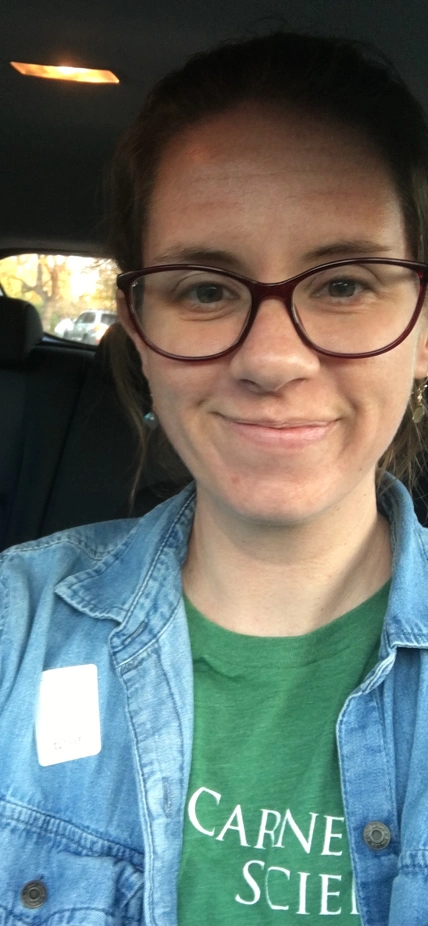Washington, DC— In September, astronomer Johanna Teske will join Carnegie’s Earth and Planets Laboratory as a Staff Scientist. Teske has been with Carnegie since 2014, first as the inaugural Carnegie Origins Postdoctoral Fellow and currently as a NASA Hubble Fellow.
“I’m thrilled to be able to continue my career at Carnegie and to be the first Staff Scientist hired at the newly formed EPL,” Teske said. “This institution has shaped my approach to research and I am excited to advance to the next stage of my career as one of its faculty.”
Teske’s work aims to help scientists better understand the planetary formation process and explain why there is such tremendous planetary diversity in our galaxy. She uses observational data from the telescopes at Carnegie’s Las Campanas Observatory, as well as from space-based telescopes and other facilities, to estimate the interior and atmospheric compositions of extrasolar planets and the chemical environments of their formation via their host star compositions. Her work could also help identify candidates from among the thousands of known exoplanets that could have the right conditions to host life as we understand it.
Teske has worked closely with planetary science experts at EPL and with instrumentation experts at the Carnegie Observatories, as well as with researchers from academic institutions around the world to make many exciting contributions to the exoplanet field. She has played a role in several notable discoveries, including the first Earth-sized planet found by NASA’s Transiting Exoplanets Satellite Survey (TESS), a cold super-Earth orbiting the second-closest star to our own Sun, a super-Tatooine system of two stars hosting three planets, and more.
For the last two years, Teske has been co-leading, with Sharon Wang, another former postdoctoral fellow at both EPL and the Observatories now at Tsinghua University, the first statistical survey of small transiting planets that were first detected by TESS. The initiative aims to reveal the compositions and unravel the formation histories of super-Earth exoplanets, which are unlike any known planets in our Solar System.
“Johanna is a creative thinker who is always looking for new ways to approach longstanding questions and ready to embrace multidisciplinary and collaborative efforts, all of which makes her a perfect fit for the Carnegie way of doing science,” said Earth and Planets Laboratory Director Richard Carlson. “We are proud to welcome her back to Washington as a member of our academic staff.”
An enthusiastic member of the Carnegie community and of campus life both in Washington, DC, and Pasadena, Teske was the third winner of the institution’s Postdoctoral Excellence and Innovation recognition and a member of two teams that were awarded Carnegie Venture grants. One aims to detect the presence of molecules in the TRAPPIST-1 system’s seven planets that are considered fundamental for the emergence and sustenance of life and the other to establish a repository for Carnegie datasets that can be used by citizen scientists. She has also played a leadership role in the ongoing diversity, equity, and inclusion efforts at the Observatories and plans to continue learning about and taking action in these areas as an EPL Staff Scientist.
Prior to joining Carnegie, Teske earned a Ph.D. in astronomy from the University of Arizona and a bachelor’s degree in physics from American University.
